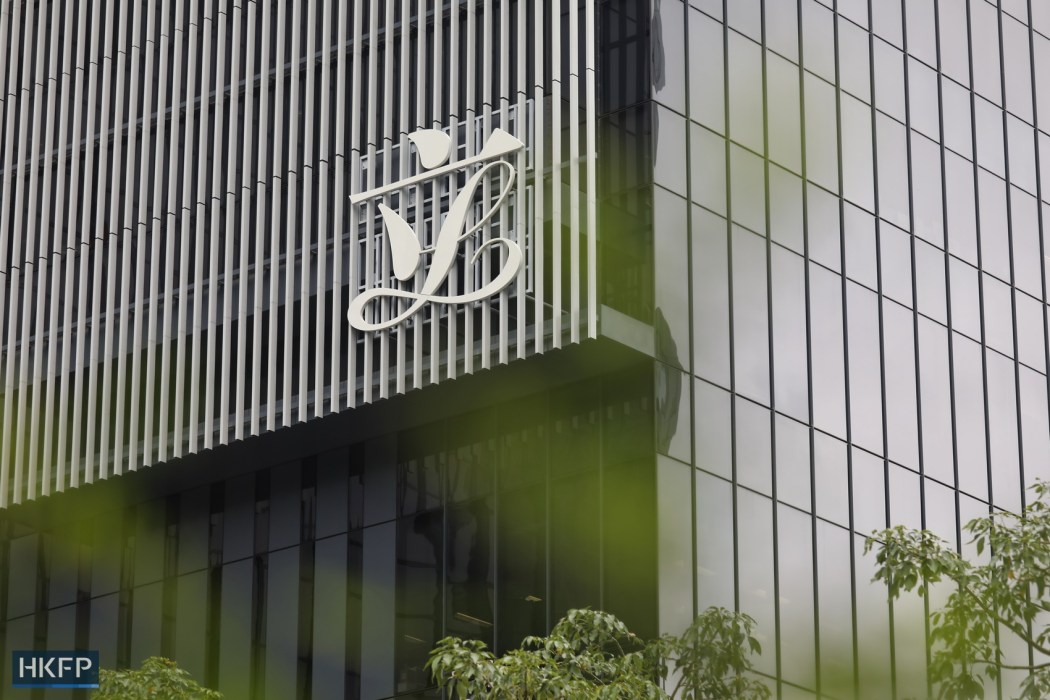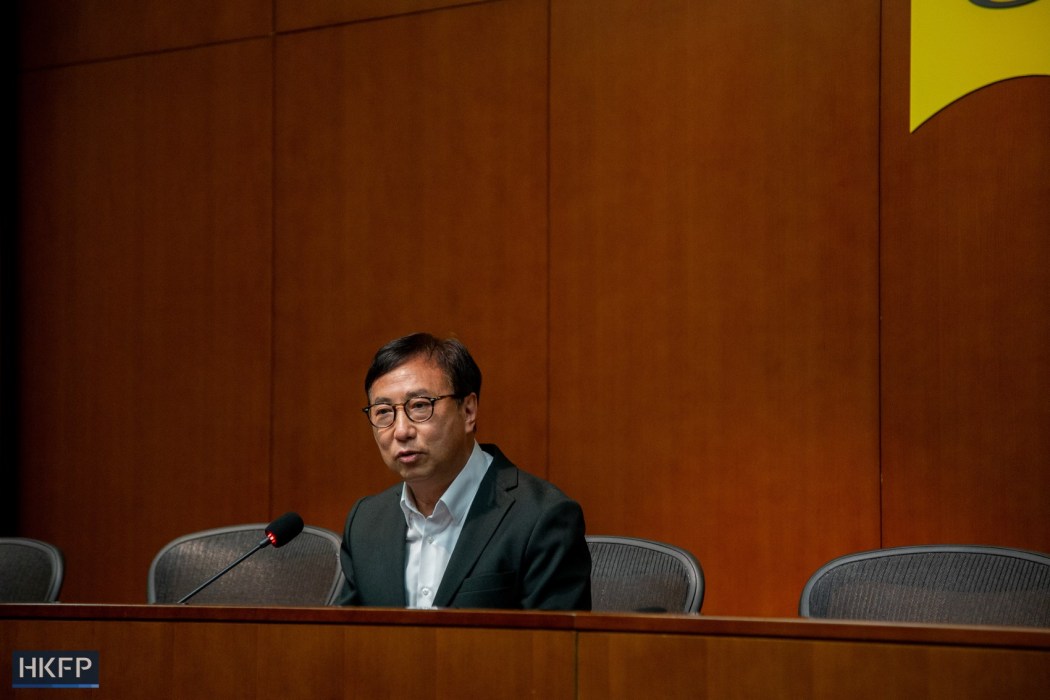Each year, Hong Kong’s legislators can submit an unlimited number of questions about government spending for special meetings of the Legislative Council’s (LegCo) Finance Committee.
The administration is obliged to submit written responses, as well as attend meetings, usually held in April each year, to answer further questions from lawmakers.
The city’s 89 Legislative Councillors submitted a total of 3,519 questions this year, with Tik Chi-yuen, the legislature’s only self-proclaimed non-establishment lawmaker, topping the chart with 317 inquiries.
Pro-Beijing Legislative Councillor Judy Chan from the New People’s Party was the only other lawmaker to ask more than 100 questions. She submitted a total of 221 queries.
The number of questions submitted by legislators this year quadrupled from last year’s total, when lawmakers submitted 865 questions.


Then-chief executive Carrie Lam wrote to LegCo President Andrew Leung last February saying that she hoped lawmakers would ask fewer questions about her administration’s work, as it was devoting its efforts to fighting the city’s fifth Covid-19 wave – the deadliest outbreak Hong Kong witnessed.
Despite being a significant increase on the number of questions submitted in the previous year, the 2023 figure was only half the total number of questions received by government departments before major events saw the opposition effectively ousted from the legislature. and the drastic LegCo electoral overhaul in 2021.
Pro-democracy lawmakers resigned en masse in late-2020 after four were disqualified by the government following a Beijing decision to oust lawmakers who were seen to have promoted or supported Hong Kong independence, who had appealed to foreign governments to “interfere,” who refused to accept China’s rule over the city, or who endangered national security.
Following the mass resignation, only 42 lawmakers were left in the then-70-seat LegCo; they submitted a total of 3,287 questions in 2021. In previous years, lawmakers in that LegCo term – which ran from October 2016 to December 2021 – submitted at least 6,000 questions per year.
Then, in March 2021, Beijing passed legislation to ensure “patriots” govern Hong Kong. The move reduced democratic representation in the legislature, tightened control of elections and introduced a pro-Beijing vetting panel to select candidates.
The Hong Kong government said the overhaul would ensure the city’s stability and prosperity. But the changes also prompted international condemnation, as they made it near-impossible for pro-democracy candidates to stand.
Key avenue for civil society groups
For civil society groups, special Finance Committee queries were the only avenue where they could obtain otherwise unavailable or confidential information from the administration.

Brian Wong, a researcher from Liber Research Community, said the group often used to work with lawmakers on questions to submit to the government, with topics ranging from housing to welfare.
“It is becoming increasingly difficult for civil society groups to obtain official information in recent years,” Wong told HKFP.
Not only had the number of questions submitted dropped drastically following the LegCo electoral overhaul, Wong said the quality of questions had also “plummeted.”
“After the LegCo revamp, for example [lawmakers] no longer ask for specific policy information or statistics, but chose to ask yes-no questions or open-ended questions,” said the researcher.
“The administration will definitely beat around the bush, and is not really able to answer anything,” he added.

Wong said Liber had not collaborated with any lawmakers this year, but there were still questions to be answered, such as those about the distribution of resources used to combat Covid-19.
“How did they spend our anti-pandemic fund? How much did the anti-pandemic supplies cost?” Wong asked.

“[The government] did not actually give a detailed breakdown, they only mentioned something about spending over HK$4 billion on RAT test kits, but the kits were distributed to which department, and when? Or to which organisations? These are actually very important [questions],” he said.
Answers to questions submitted to the special Finance Committee were often the only source of public information that research groups could publicise, Wong said.
Members of the public could attempt to obtain information from the government under the Code on Access to Information, but it was normally subject to certain terms, such as prohibitions on publicising the data.
“It’s clear from our previous experience that there is differential treatment towards ordinary citizens as opposed to lawmakers when it comes to open data,” said the researcher.
Proactivity ‘a matter of debate’
Legislator Tik, who is chairperson of political party Third Side and represents the social welfare sector, told HKFP that he had collected questions from a dozen NGOs this year to submit to the administration. He described his party’s proactivity when it came to submitting questions as satisfactory.

He said that he could not speak to other lawmakers’ decisions, saying that they could have other means to collect opinion from the public and the government.
“As to whether one can use the number of question to assess the proactivity in keeping the government accountable, that’s a matter of debate,” said Tik.
Support HKFP | Policies & Ethics | Error/typo? | Contact Us | Newsletter | Transparency & Annual Report | Apps
Help safeguard press freedom & keep HKFP free for all readers by supporting our team

LATEST FROM HKFP
HKFP has an impartial stance, transparent funding, and balanced coverage guided by an Ethics Code and Corrections Policy.
Support press freedom & help us surpass 1,000 monthly Patrons: 100% independent, governed by an ethics code & not-for-profit.










